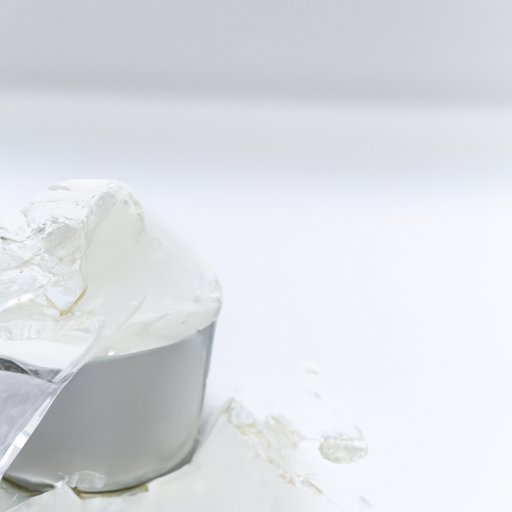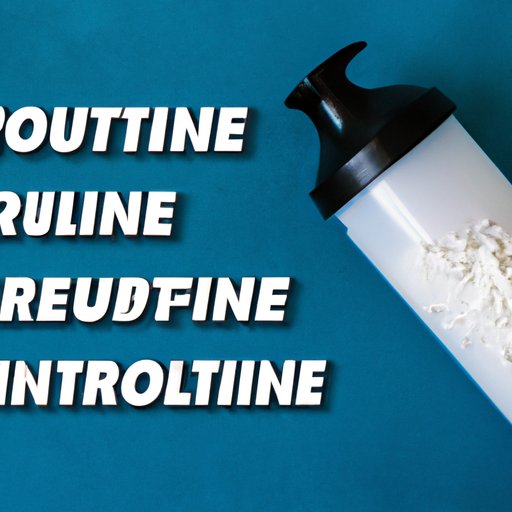
Introduction
For anyone who has ever considered taking a creatine supplement, the question of weight gain is most likely at the forefront of their minds. Creatine is a popular supplement used by many athletes, bodybuilders, and fitness enthusiasts, but with its reputation for adding water weight, it’s no surprise that some people are hesitant to try it. In this article, we will explore the science behind creatine and weight gain, dispel common myths and misconceptions, and provide practical advice for maximizing the benefits of this popular supplement while minimizing the extra weight it can bring.
The Science Behind Creatine: Understanding Its Effect on Weight Gain
Creatine is a naturally occurring substance found in muscle cells. It plays a key role in the production of ATP (adenosine triphosphate), which is the primary source of energy for muscle contractions during high-intensity exercise. When you take a creatine supplement, you are increasing the amount of creatine stored in your muscles, which can lead to higher levels of ATP production and improved performance.
So, how does creatine lead to weight gain? The answer lies in the way that creatine affects the body’s water balance. Creatine draws water into the muscles, which can lead to an increase in overall body weight. This water weight is not the same as fat weight, however, and it is important to understand the difference.
Adding Creatine to Your Workout Routine: What to Expect in Terms of Weight Gain
When adding creatine to your workout routine, it is important to follow a few simple steps to ensure that you are getting the most out of the supplement while avoiding any unwanted weight gain. First, be sure to drink plenty of water throughout the day. Dehydration can lead to more significant water weight gain, so it’s important to stay hydrated.
Second, start with a loading phase, which involves taking a larger dose of creatine for the first week or so, followed by a maintenance phase where you take a smaller dose for the remaining weeks. This loading phase can help to increase the levels of creatine stored in your muscles more quickly, which can lead to better performance gains.
Finally, be realistic about your expectations for weight gain. While some people may experience a significant increase in water weight when using creatine, others may not notice much of a difference at all. It’s important to remember that water weight is not the same as fat weight, and that the benefits of creatine for performance and muscle growth far outweigh any temporary increase in weigh.
Maximizing the Benefits of Creatine: A Guide to Weight Management
While creatine is known for its ability to improve athletic performance, it also offers a range of other benefits, including increased muscle growth, improved recovery, and increased strength. To maximize these benefits, it is important to pay attention to your diet and hydration levels while taking creatine.
First, be sure to eat a balanced diet that includes plenty of protein, complex carbohydrates, and healthy fats. This will help to support muscle growth and recovery, and ensure that you are getting all of the nutrients your body needs to function properly.
Second, hydrate, hydrate, hydrate. As we’ve already mentioned, dehydration can lead to more significant water weight gain when taking creatine, so it’s important to drink plenty of water throughout the day. Aim for at least 8-10 glasses of water per day, and increase your intake if you are sweating more than usual during exercise.
The Truth About Creatine and Weight Gain: Dispelling Common Misconceptions and Myths
Despite the many benefits of creatine, there are still many misconceptions surrounding the supplement, particularly when it comes to weight gain. One of the most common myths is that creatine can cause significant fat gain, which is simply not true.
In fact, research has shown that creatine supplementation can actually help to reduce body fat levels by improving overall body composition. This is because creatine has been shown to increase lean muscle mass, which can help to boost metabolism and improve fat burning.
Another common misconception is that the water weight gain caused by creatine is a bad thing. While it is true that water weight can add to overall body weight, this is not the same as fat weight, and it is not a cause for concern. In fact, this extra water can help to keep your muscles hydrated, which can improve recovery and overall performance.
Achieving Your Fitness Goals with Creatine: How Weight Gain Plays a Role
For anyone with fitness goals, whether it’s to improve strength, build muscle, or simply stay in shape, creatine can be a powerful tool. By increasing ATP production and improving overall muscle performance, creatine can help to improve overall fitness and contribute to a healthier, more active lifestyle.
When it comes to weight gain, it’s important to remember that this is a natural part of the process when using creatine, and that it can actually be a good thing. The extra water weight can help to support muscle growth and recovery, while also improving overall hydration levels.

Personalizing Your Creatine Routine for Optimal Weight Management
Finally, if you’re looking to get the most out of your creatine supplement while also managing your weight, it’s important to create a personalized routine that takes into account your individual needs and goals.
Start by setting realistic expectations for weight gain, and consider tracking your progress over time to see how your body reacts to the supplement. Be sure to pay attention to your diet and hydration levels, and make adjustments as necessary to ensure that you are getting the most out of the supplement while minimizing any unwanted weight gain.
Conclusion
In conclusion, creatine is a powerful supplement that offers a range of benefits for athletes, bodybuilders, and fitness enthusiasts. While it is true that the supplement can cause some water weight gain, this is not the same as fat gain, and it is not a cause for concern. By following the steps outlined in this article, you can maximize the benefits of creatine while minimizing any unwanted weight gain, and achieve your fitness goals with confidence.




